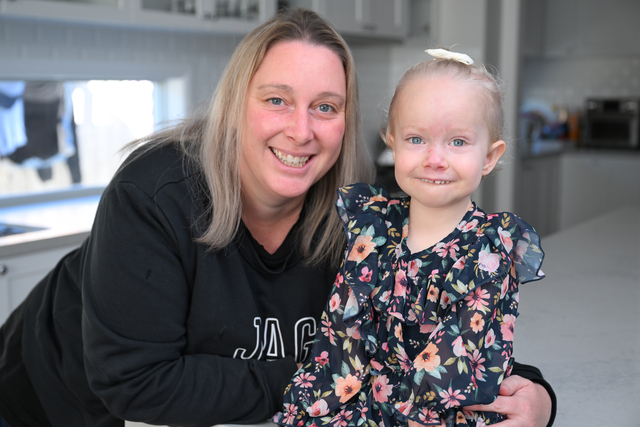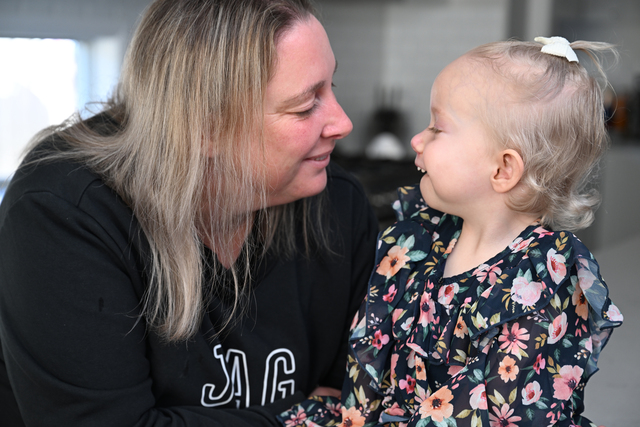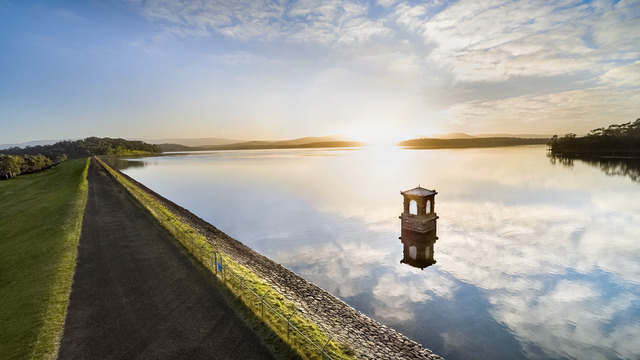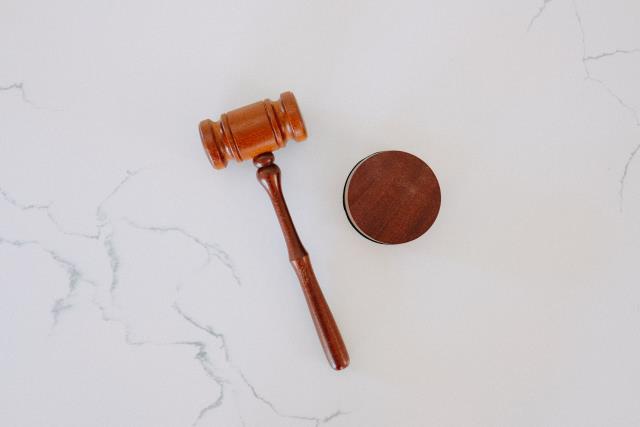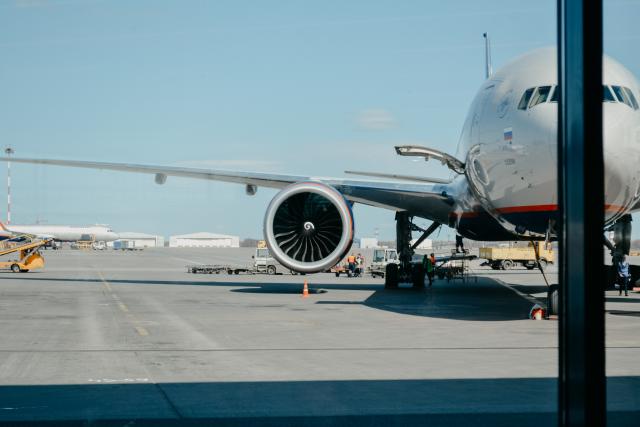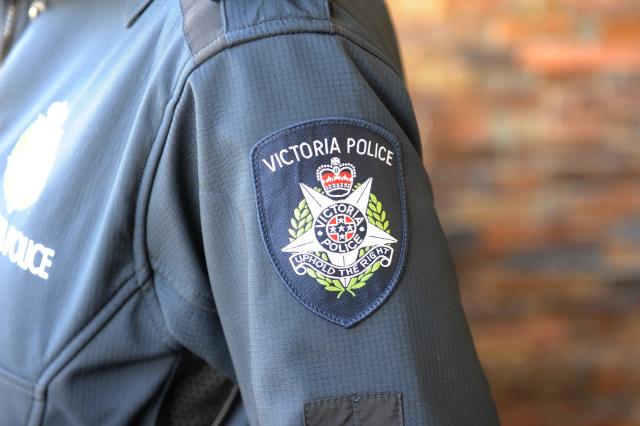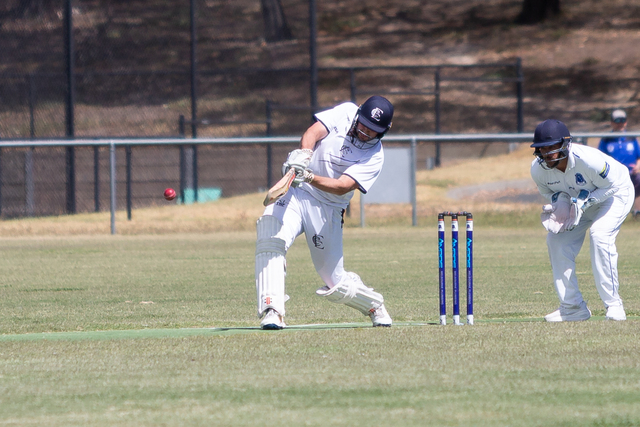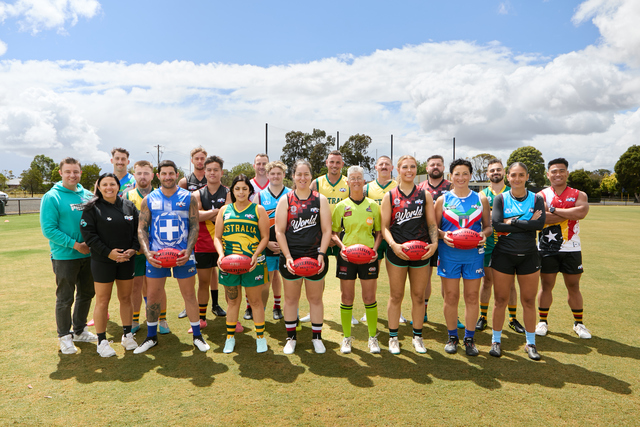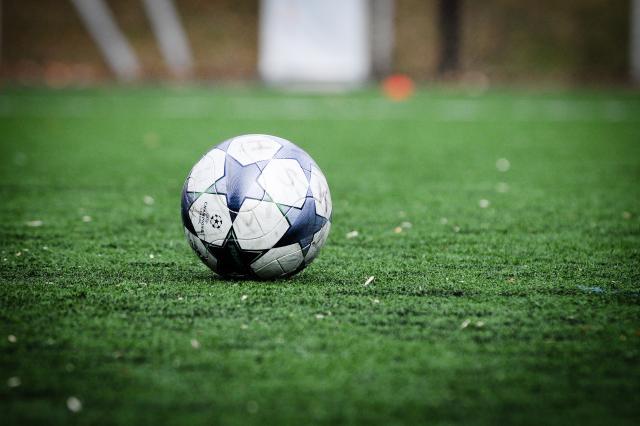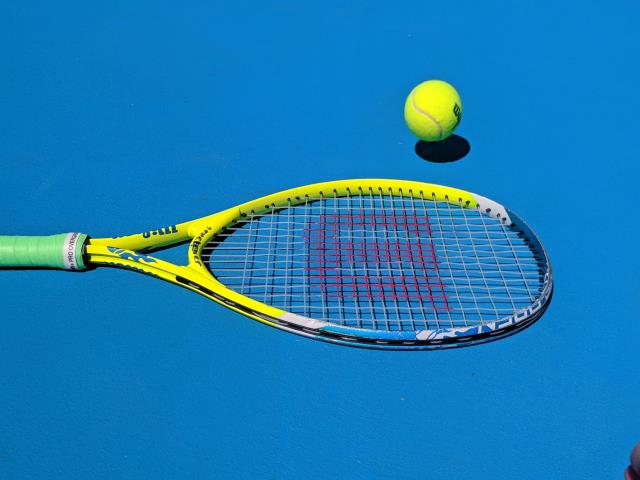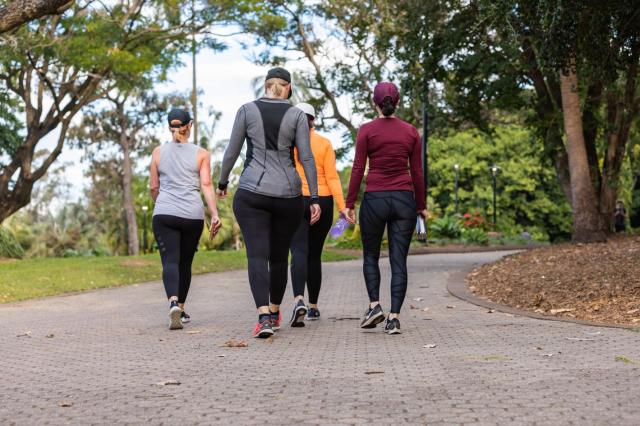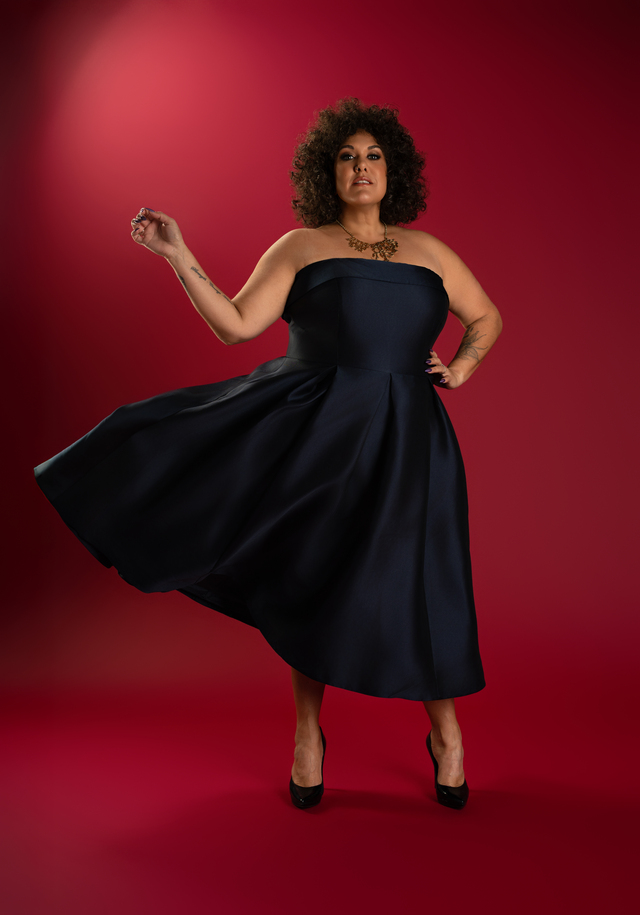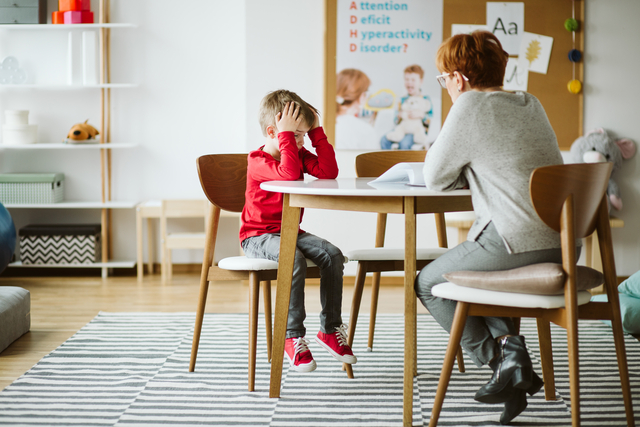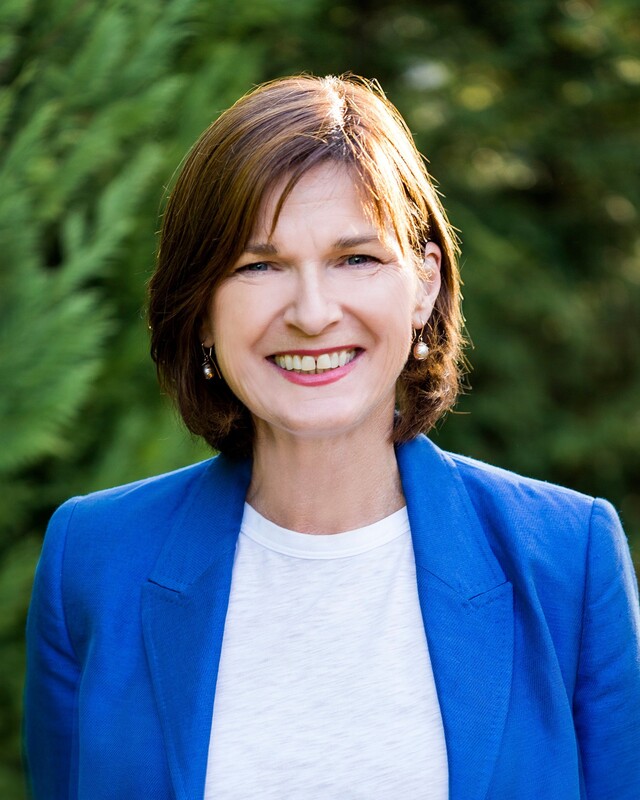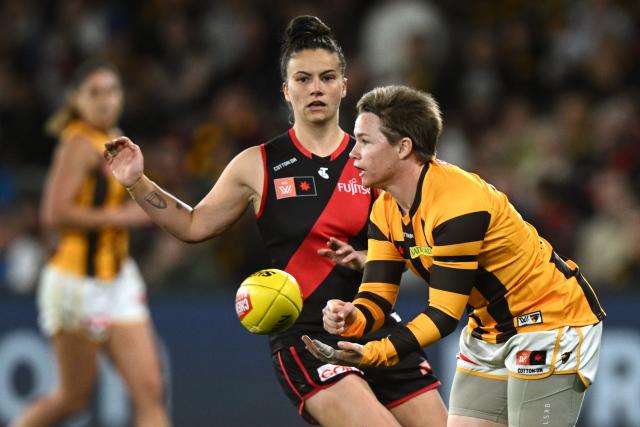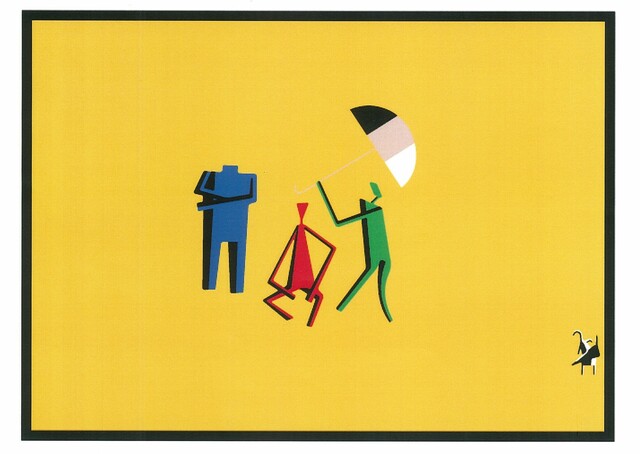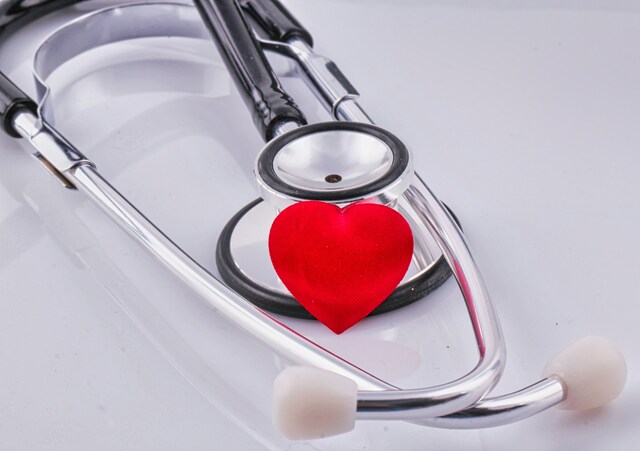Born with a rare disorder called Arthrogryposis (AMC), little Georgie entered the world unable to move any part of her body.
Doctors warned her mother Whitney Milson, from Donnybrook, that her condition was likely to be severe.
“We found out at 18 weeks pregnant, and we were told it was going to be a lot worse than it turned out to be,” Whitney recalls.
“They said she probably wouldn’t survive birth, and if she did, she wouldn’t be able to breathe or eat on her own. We were told she would never be able to move.”
But Georgie defied those expectations. Now two-and-a-half years old, she is rolling, sitting, grabbing, kicking, and beginning the process of achieving standing–milestones that once seemed impossible.
Her journey has not been easy. Georgie spent her first eight weeks of life at Mercy Hospital before being transferred to The Royal Children’s Hospital (RCH) at 12 weeks old, She has since undergone multiple reconstructive surgeries and intensive rehabilitation and therapy.
She is in the process of having her knees reconstructed and visits the RCH weekly.
“It was difficult at the start, especially with covid restrictions still in place,” Whitney said.
“Our middle child was only 18 months old when Georgie was born, so he needed me, but I wasn’t able to be there.”
Despite the challenges, Whitney and her family have adapted.
“We’ve adjusted now – it’s just become life.”
The RCH has played a crucial role in Georgie’s progress, Whitney said.
“They’ve been really good. At the start, it was a bit overwhelming with so many different areas to go to, but now everything is more streamlined,” Whitney explains.
“Dr Leo Donnan, her orthopaedic specialist, has done all her reconstructive work and keeps a very close eye on her progress. She also sees Dr Dan Wilkes and the plastic team, who have been fantastic.”
The family is immensely grateful for the support from the hospital and encourages people to back initiatives like the Good Friday Appeal.
“The hospital staff are definitely overworked, and every little bit of funding helps. It allows them to keep updating technology, bring in the best surgeons, and fund research,” Whitney said.
“With something as rare as what Georgie has, there’s not much knowledge out there, so we’re incredibly lucky that one of the few specialists in the world works here.”
Looking ahead, the next major step for Georgie is surgery on her arms to improve mobility.
“At the moment, she can’t bend her elbows, but after the surgery, she’ll be able to brush her hair and eat by herself,” Whitney said.
“Her physio is working extremely hard to get her standing and walking independently.”
While Georgie remains a bright and happy child, she has become more aware of hospital visits and medical procedures.
“She has a lot of anxiety, interrupted sleep, and nightmares about her surgeries. The mental health team works closely with her to make things as comfortable as possible,“ Whitney said.
Whitney’s advice to other families facing similar challenges with their children, is simple.
“Listen to the specialists, but hold hope, and keep motivating and pushing.”

